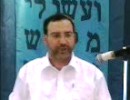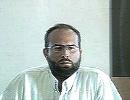392
The Chachamim instituted the recital of three berachot with Keriat Shema of Shacharit, two before the Shema and one after it (Mishnah, Berachot 11a). These berachot add to the content of Keriat Shema, including praise and thanksgiving to Hashem for creating and ruling over the world.
In Keriat Shema we say "Hashem Echad" ("Hashem is One"), denoting that He is the single entity that constitutes and fills the whole world with His oneness. In the first berachah of Keriat Shema, we expand on this foundation. By praising Him for the light that is renewed daily, we extol Hashem, "Who constantly renews the events of creation every day." In order to emphasize His all-encompassing domain, we mention that He also created the darkness. At night, in the parallel berachah, together with the praise that He is "Ma’ariv aravim" ("the One Who brings on evening"), we add that he is "Borei yom valaylah" ("the Creator of day and night"). Hence, in the first berachah, our belief in God’s unity is given more expanded expression.
Opening with the words "Shema Yisrael" ("Hear O Israel") expresses our belief that God’s unity is revealed to the world via the nation of Israel, which was expressly created for that purpose. This idea is expanded upon in the second berachah, in which we thank Hashem for the love that He feels for us and for giving us the Torah. We pray that we merit understanding the Torah and fulfill it with love, thereby revealing Hashem’s Name in the world.
"Hashem Elokeinu" ("Hashem our God") means that Hashem is omnipotent and rules over the world according to His will. His control of the world, with all its forces and components, was revealed most clearly in the exodus from Egypt, which is mentioned at the end of Keriat Shema. This, too, is revealed through the nation of Israel. In the third berachah we expand on this foundation and praise Hashem, "You are the first and You are the last, and aside from You we have no king, redeemer, or savior. From Egypt You redeemed us…" Additionally, we mention the slaying of the firstborn in Egypt and the splitting of the Sea. We then conclude, "Blessed are You, Hashem, Who redeems Israel."
We see, therefore, that all three berachot are a continuation of, and an expansion on, the foundations of faith that are found in Keriat Shema.
Although the proper order that the Chachamim established is to say Keriat Shema with its berachot, nevertheless, one’s neglect to recite one of them does not prevent him from fulfilling the mitzvah of the other. If a person recites Shema without its berachot he still fulfills the mitzvah of Keriat Shema, and if he recites the berachot without saying Keriat Shema he still fulfills the mitzvah of reciting the berachot. Similarly, one’s neglect to recite one berachah does not hamper the recital of the others. Therefore, if a person recites one of the berachot, he fulfills his obligation over the blessing which he recites. All the more so, reciting the berachot in the wrong order does not prevent one from fulfilling his obligation to say them, so if someone mistakenly recites the second berachah before the first, he still fulfills his obligation. However, l'chatchilah, one must recite all the berachot together in the order that the Chachamim established. 1
2.The Link between Pesukei d’Zimrah and Birkot Keriat Shema
Upon the conclusion of Pesukei d’Zimrah and Yishtabach, the chazan recites Half-Kaddish. As we know, the virtue of the Kaddish is very great, and the Chachamim praise those who respond Amen to it with kavanah (see further in this book 23:6). The Chachamim instituted its recital at the conclusion of every stage of the prayer service in order to end each step in supreme sanctity, and from that holiness to continue on to the next stage of prayer. This Half-Kaddish creates a break between Pesukei d’Zimrah (corresponding to the world of yetzirah) and Keriat Shema and its berachot (which correspond to the world of beriah).
One may not interrupt by speaking between Pesukei d’Zimrah and Birkot Keriat Shema. Someone who does interrupt commits a sin, since Pesukei d’Zimrah serves as a preparation for prayer (Shulchan Aruch 54:3).
If a group of people praying reaches the end of Pesukei d’Zimrah and they do not yet have a minyan, they should stop after Yishtabach and wait for a minyan. They may learn Torah in the meantime. L'chatchilah, they should study silently, so they do not interrupt their prayer by speaking. However, one who cannot learn without actually uttering the words may learn by saying them, since, for the sake of a mitzvah, it is permissible to interrupt between Yishtabach and Barchu. The chazan should wait before Yishtabach for ten men to assemble so that he can say Yishtabach, and afterwards, Half-Kaddish. If he already concluded Yishtabach, after ten men have already gathered he should recite three verses of Scripture so that the Kaddish will apply to them and subsequently recite Half-Kaddish (Mishnah Berurah 53:10-11).
When the gabbai must relay an urgent message to the congregation, either pertaining to the needs of the community or for the sake of a mitzvah, and it is impossible to delay the announcement until after the prayer service, he may announce it between Yishtabach and Kaddish. Afterwards, the chazan recites a few verses and Kaddish. However, if the Kaddish was already recited, it is forbidden to interrupt even for the sake of a mitzvah, and he must wait until after Kaddish titkabal to make the announcements (Shulchan Aruch, Rama 54:3; 57:2; Mishnah Berurah 54:6).
3.Barchu
After the Kaddish, the chazan says, "Barchu et Hashem hamevorach" ("Bless Hashem Who is blessed"). The congregation responds, "Baruch Hashem hamevorach l’olam va’ed" ("Blessed is Hashem, Who is blessed for all eternity"), and the chazan repeats the congregation’s line, saying, "Baruch Hashem hamevorach l’olam va’ed" (Shulchan Aruch 57:1).
The primary purpose of Barchu is to introduce Birkot Keriat Shema, for by declaring "Barchu," the chazan invites the congregation to recite Birkot Keriat Shema. Even though it can also be recited as praise in itself, like when Barchu is recited at the conclusion of the prayer service, nevertheless, the essence of its establishment was to introduce Birkot Keriat Shema. Therefore, every person must finish saying Pesukei d’Zimrah and Yishtabach before Barchu so that immediately after Barchu he can begin Birkot Keriat Shema. It is best to even skip Az Yashir in order to start Birkot Keriat Shema with the congregation. Still, whoever did not yet succeed in saying the berachah of Yishtabach, even if he already responded to Barchu, must conclude Yishtabach and only afterwards continue with Birkot Keriat Shema. 2
There are varying customs with regard to standing when responding to Kaddish and Barchu. According to the minhag of most Sephardim, there is no need to stand up while answering matters of sanctity, but one who is already standing must remain that way for Kaddish and Barchu (Maharil, Kaf HaChaim 56:20; 146:20-21; Yechaveh Da’at 3:4). Most Ashkenazim are accustomed to standing while responding to Kaddish and Barchu which are matters of sanctity (Mishnah Berurah 54:7-8; 146:18). However, concerning Barchu which requires a short answer, many Ashkenazim have the custom that if they are already sitting, such as for Torah reading, or before Ma’ariv, they do not completely stand up, rather they only rise slightly from their chairs when responding. This is similar to the custom many people have when answering a zimun with ten men.
When the chazan says the word "Barchu" he bows a bit, and when saying "Hashem" he straightens himself. Regarding the congregation, there are different customs. There are those accustomed to bowing down completely, those who bow slightly, and those who don't bow at all. Every person should follow his family’s minhag. When people with different minhagim pray together, it is proper that everyone bows slightly (see further in this book chapter 17, note 3).
^ 1. The first berachah, "Yotzer HaMe’orot," opens with the word "Baruch" and the berachot that follow, although they are long, do not begin with "Baruch" since they are considered to be a continuation of the first berachah. The fact that l'chatchilah they must be recited together with Keriat Shema is agreed upon by all opinions. According to the Gra and those of similar opinion, this matter is simple. It seems that even the reasoning behind the ruling of the Ra’ah and the Shulchan Aruch, who write that one should fulfill his obligation of Keriat Shema by having kavanah when reciting Keriat Shema of the Korbanot, is that by the time the congregation prays, it is too late, and there is concern that the time to recite Keriat Shema will pass. However, were there no such case, all opinions agree that it is best to fulfill the obligation of Keriat Shema with its berachot.
Likewise, this can be learned from the law that a person who is uncertain as to whether or not he recited Keriat Shema and its berachot must also repeat the berachot. At first glance this is problematic, for when there is doubt concerning berachot we are lenient and we refrain from reciting them (safek berachot l’hakel). However, since the berachot are part of the fulfillment of the mitzvah of Keriat Shema, the law regarding the berachot follows Keriat Shema, see Mishnah Berurah 67:4, based on the Rashba. This can also be inferred from the law regarding a person whose profession is Torah learning, for although he is exempt from prayer, he is obligated to recite Keriat Shema and its berachot (Mishnah Berurah 106:6).
^ 2.Mishnah Berurah 54:14. He adds that a person who is after Barchu is considered like one who is in the middle of a passage. If tallit and tefillin are brought to him, he must postpone putting them on until the end of the berachah, as clarified in note 4 of this chapter.
See Beit Yosef 69 who writes that some say that concerning Perisat Shema the chazan must recite Birkat Yotzer Or in addition to Barchu, even if he already said it, because one may not recite Barchu without saying at least one berachah after it. So writes the Mahari Abuhav, whose words are clarified in the Mishnah Berurah 69:3. However, Darkei Moshe writes that one may say Barchu without reciting a subsequent berachah. That is the customary practice at the end of the prayer service; Barchu is recited without a berachah. Nevertheless, as we learned, the essence of Barchu is to introduce Birkot Keriat Shema.
?How we should dress for Prayer
Chapter five-part two
Rabbi Eliezer Melamed | 5775

Historical View of Rav Mordechai Yaakov Breish (Chelkat Yaakov)
Various Rabbis | 5775

How Does a Heter Iska Work?
Rabbi Yirmiyohu Kaganoff | 5770







